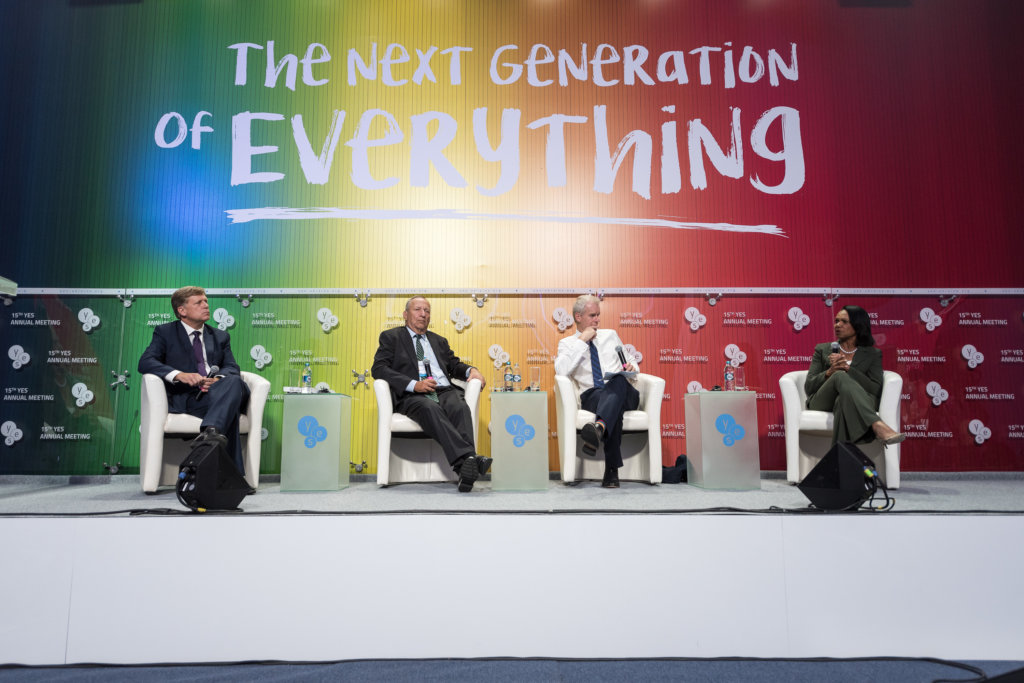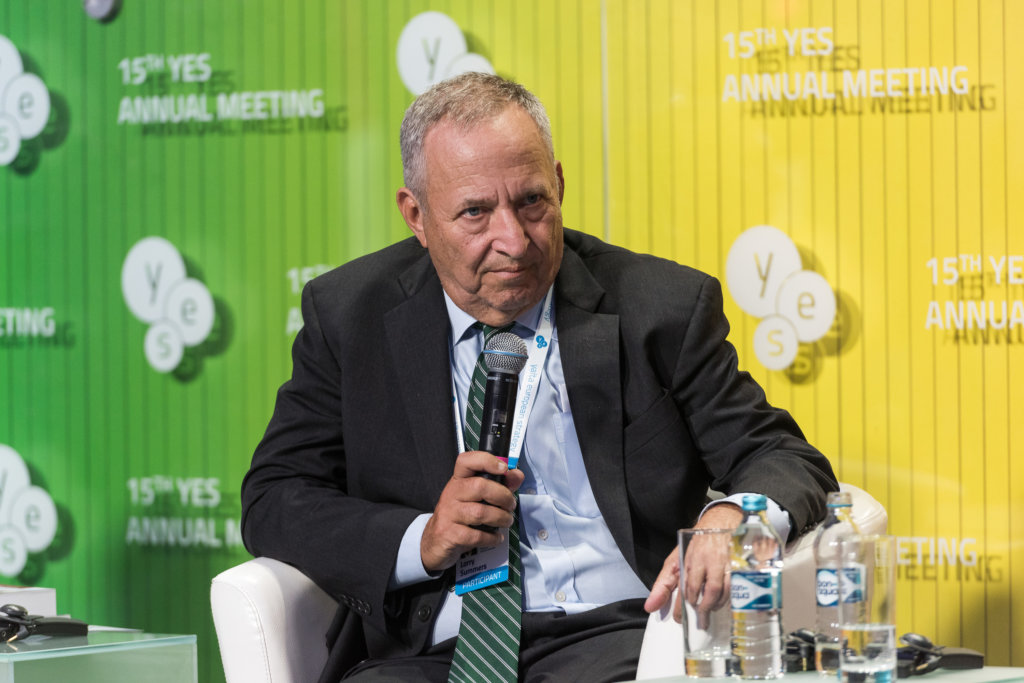Three U.S. intellectual leaders – former ambassador to Russia Michael McFaul, 66th Secretary of State Condoleezza Rice and Harvard University’s Lawrence Summers – contemplated on the future state of their country and its global role at the annual Yalta European Strategy conference in Kyiv on Sept. 14.
Rice admits that the U.S. is facing major problems but she believes that these problems have not been caused by President Donald Trump as these have been long-term growing trends in the country.
“We are a polarized state at this point, we are a country in which many fellow citizens feel that they have been left behind by rapid globalization and in fact being left behind further by rapid automatization…,” Rice said. But “this is a system, not a single person.”
But she believes that her country has a good system of checks and balances that will eventually solve these problems and added that Ukraine could learn a bit from it.
“The founding fathers of the United States – and for a young democracy like Ukraine this is a very important lesson – were very suspicious of executive power, and they made certain that it would be severely checked by creating a Congress with two houses, we now have 535 people in those houses of Congress who believe that they should be president, we have 50 governors, we have state legislatures, we have a strong civil society, we have a press.”

From left: Former U.S. Ambassador to Russia Michael McFaul, Harvard University’s Lawrence Summers, BBC World News HARDtalk presenter Stephen Sackur, and 66th Secretary of State Condoleezza Rice speak at the Transatlantic Lunch during the 15th Yalta European Strategy conference in Kyiv on Sept. 14. (Courtesy)
But Summers thinks that the strength of the president’s political position is exaggerated and that he will be strongly challenged by the upcoming midterm elections in November.
“I learned as a child that when the weather forecasters said there’s going to be two inches of snow, then the weather forecasters said there were gonna be six inches – there was probably going to be a foot,” Summers said. “And that’s the way I read prognostications about the midterm election which I expect is going to be substantially more adverse for the president then the current conventional wisdom has it.”
“I believe that he is without a reservoir of personal loyalty anywhere in American politics, and when a whiff of kryptonite – and I believe the election will be more than a whiff of kryptonite – is in the air, Superman starts to seem much less strong,” Summers added.

Professor Larry Summers of Harvard University talks the future of the U.S. during the Transatlantic Lunch at 15th Yalta European Strategy conference in Kyiv on Sept. 14. (Courtesy)
The former Harvard University president believes that President Trump will make it to the end of his term as Americans will show a pushback.
“I agree with Condy’s broad and basic sense of the resilience of American society in moving beyond moments of grave concern but I don’t think that happens automatically,” Summers said. “That happens because people become intensely concerned.”
McFaul, on the other hand, despite his strong criticism of Trump, thinks that generally, the Trump Administration has a pretty sound set of foreign policies.
“With respect to Russia for instance, I think the Trump Administration has a good policy, it has a lot of continuity with the Obama Administration, and on some things, lethal assistance to Ukraine, it’s gone, I would say, in a more positive direction,” McFaul said.
But the problem, he says, is that Trump disagrees on many foreign policy issues of his own administration.
“That’s clear with respect to Russia, that’s clear with respect to NATO, that’s clear with respect, even I would say, to (North) Korea.”
But he agrees with Rice that the American system is set in such a way that it will keep the executive power accountable.
“(American democratic institutions) are showing themselves to be fantastically robust in a way that checks executive power,” McFaul said.
But Summers is skeptical as he thinks that the president is having a lot of negative effect on America’s foreign policy.
“The point is that you cannot have a foreign policy divorced from your president,” he said.
In this regard, Rice says that Trump’s clear stance on foreign trade policy is having an effect on the overall international trade strategy.
“One thing Trump is really convinced about is that the United States was disadvantaged by trade agreements over the last 40 years,” Rice said. “And I do think you see some within the White House trying to prevent the collapse of NAFTA, prevent an all-out trade war with China, and that is a bit unusual.”
Ask whether she would serve under Trump’s leadership, Rice ditched the question.
“I cannot answer hypotheticals to begin with… It’s a null question,” she said.
Summers had a more straightforward response.
“I would surely not remain in an administration of any president who I thought had the temperament of a child or the intellect of a fifth-grader or who I thought lacked integrity in his basic and regular dealings.”
Whoever is the president, Rice wants to see more leadership in encouraging Americans to be confidently out in the world rather than isolate themselves.
“There are twin impulses in Americans and presidents can play to either impulse and for a while now there’s been a sense of play to the sense of weariness rather than to the sense of promise,” she said. “And so what I would really like to see from whoever is president, is more playing to the sense of promise and possibility.”
